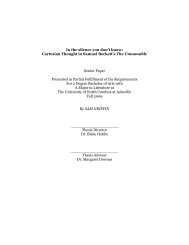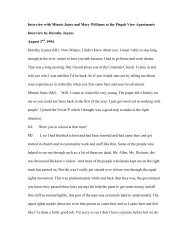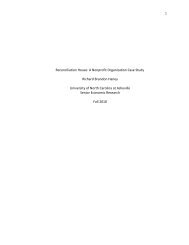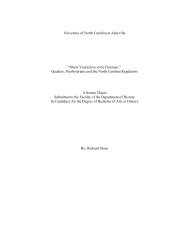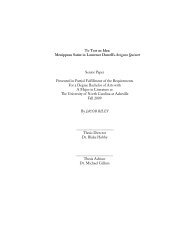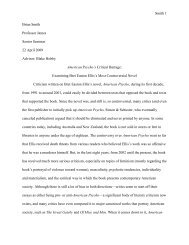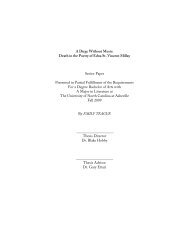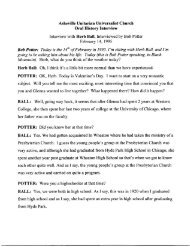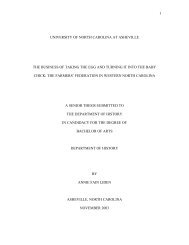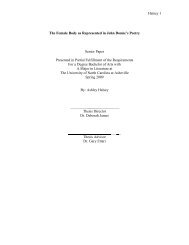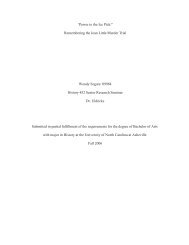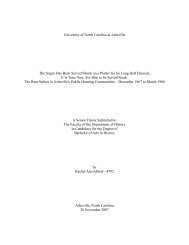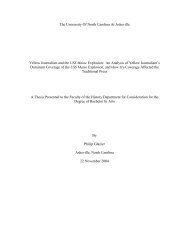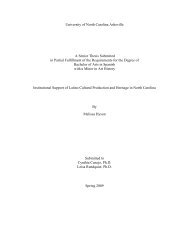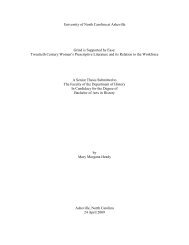Mark Twain's Writing During his Last Twenty Years: The Conflicts of ...
Mark Twain's Writing During his Last Twenty Years: The Conflicts of ...
Mark Twain's Writing During his Last Twenty Years: The Conflicts of ...
You also want an ePaper? Increase the reach of your titles
YUMPU automatically turns print PDFs into web optimized ePapers that Google loves.
Arghiere 18<br />
cause and the cause <strong>of</strong> a new but predictable effect. If people had enough<br />
information and wisdom, they might look ahead along the chain <strong>of</strong> cause and<br />
effect to see future developments. (68)<br />
Taine’s theory <strong>of</strong> natural causation closely resembles the theory <strong>of</strong> determinism in <strong>The</strong> Chronicle<br />
<strong>of</strong> Young Satan, in which the angel Satan tells <strong>The</strong>odor Fischer, “That is human life. A child’s<br />
first act knocks over the initial brick, and the rest will follow inexorably. If you could see into the<br />
future, as I can, you would see everything that was ever going to happen to that creature; for<br />
nothing can change the order <strong>of</strong> its life after the first event has determined it” (115). Although<br />
t<strong>his</strong> passage and Twain’s ideas on determinism may appear deistic or pantheistic, Twain never<br />
makes definitive claims about a Creator or deity. As the theory <strong>of</strong> determinism in the<br />
Manuscripts approximates Taine’s theory <strong>of</strong> natural causation, Twain’s deterministic obsessions<br />
likely owe much to Taine’s realist philosophical doctrines, which drew interest in America<br />
beginning around 1870 (<strong>Mark</strong> Twain and Science 69).<br />
Naturalism, as well as philosophical realism, seems to have provided the framework from<br />
which Twain constructed <strong>his</strong> late-life ideas and theories. Although Twain did not formally<br />
associate himself with the nineteenth-century, American literary naturalist movement, many <strong>of</strong><br />
<strong>his</strong> works and comments reveal sympathies with naturalist views (<strong>Mark</strong> Twain and Science 209-<br />
10). E.M. Adams, in <strong>his</strong> book Ethical Naturalism and the Modern World-View, classifies a<br />
naturalist position as one that “holds that human behavior (along with all other events) is, in<br />
principle at least, subject to scientific explanation and thus to its underlying naturalistic (or what<br />
I have called in a somewhat liberalized sense ‘mechanical’) theory <strong>of</strong> change.” Further, he adds,<br />
“If t<strong>his</strong> is so, every human act is determined by antecedent conditions in the physical world in<br />
accordance with the laws <strong>of</strong> ‘mechanical’ causality” (214). A naturalistic view in which “every



